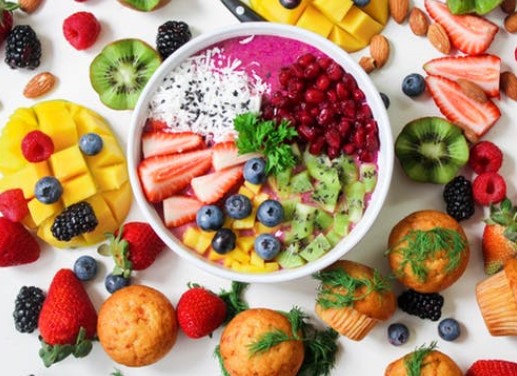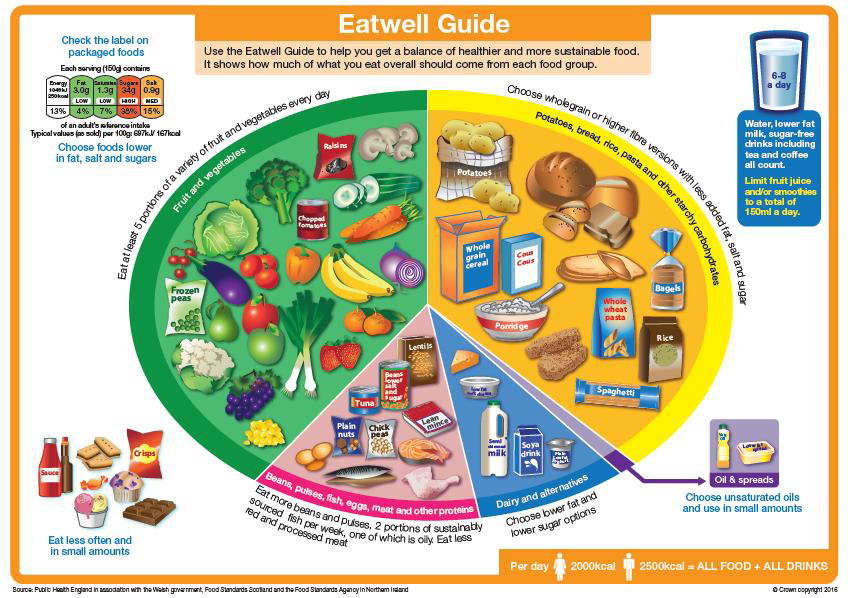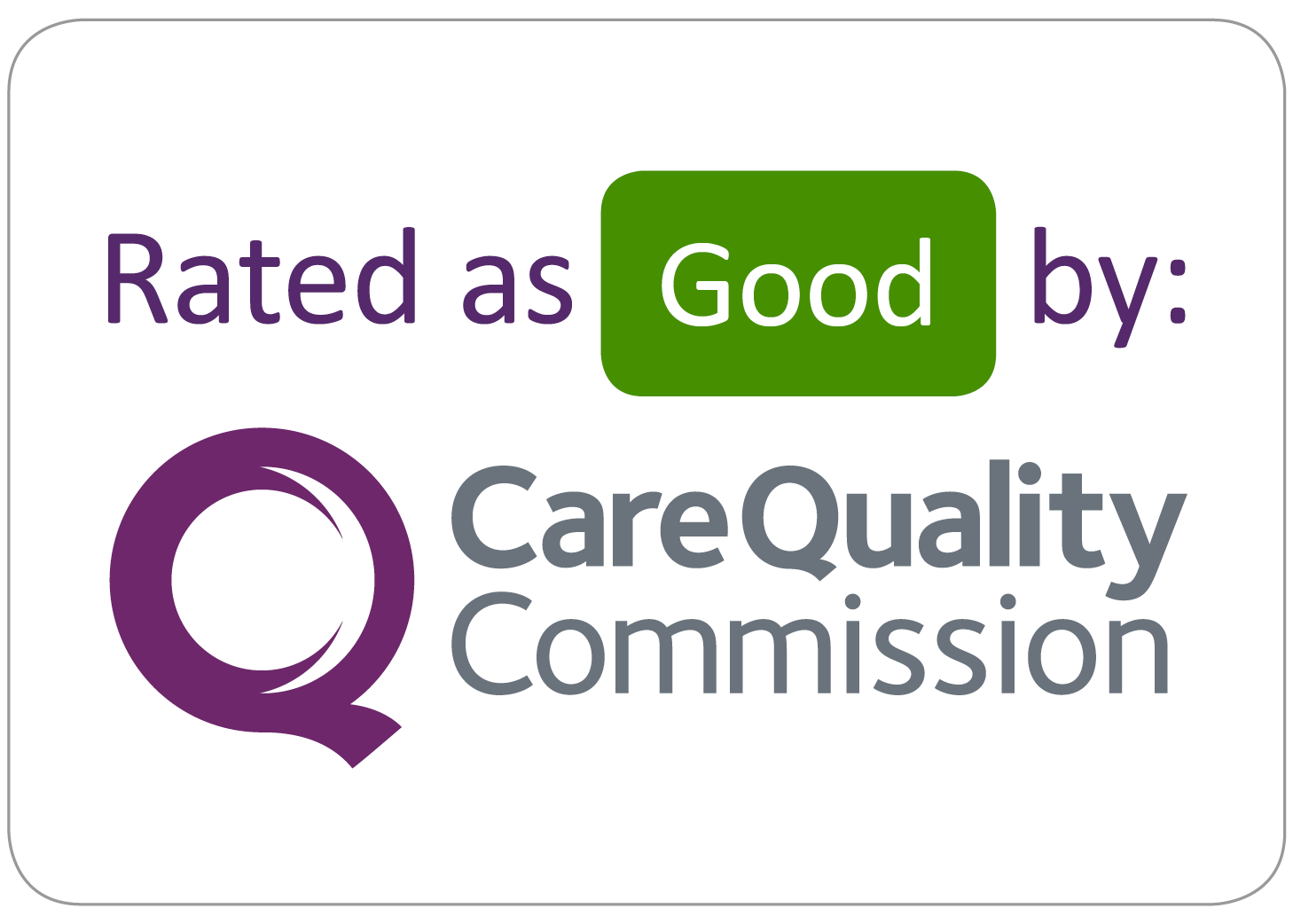Diet and healthy eating

The information provided may be useful as first-line advice and should not replace specialist advice from your healthcare team. Some people have other medical conditions alongside a cancer diagnosis which may affect what they eat. Specialist advice from your healthcare team may be needed if you have more complex nutritional needs.
The body needs a variety of nutrients from the food we eat, so aiming for a varied and healthy diet is important for all of us.
If you are living with cancer or having cancer treatment, you might not be able to eat and drink the foods you used to, or as much – (due to poor appetite, taste changes).
This can be difficult, especially if you are used to enjoying your food!
On top of symptoms caused by the cancer itself, your treatment side effects may make it more difficult to eat, and absorb what you need from your food.
Please click the link below to view the short video on diet and health eating.
Diet and Healthy Eating advice video
Recommendations:
- Reduce high calorie foods and avoid sugary drinks
- Eat 5 portions of fruit/veg every day
- Eat a portion of pulses or wholegrain foods with every meal
- Limit red meat to no more than 500g (18oz) a week and eat minimal amounts of processed meats
- Limit your alcohol intake
- Lower your salt intake. This can be helped by reducing the amount of salty and processed foods you may consume
- Do not use dietary supplements for the prevention of cancer
Click here for a colourful leaflet guide to general eating well advice.
Click here for this colourful guide to making the most of of your food with advice for patients and carers on how to enrich the foods you enjoy with added calories and nutrients and general snacking ideas if you are struggling with eating or loss of appetite.
Here are some Store Cupboard Ideas to help create nutritious snacks and meals
The Eatwell Guide
The Eatwell Guide offers a visual way to help you choose the right foods at mealtimes.
Oral Nutritional Supplements
What are Oral Nutritional Supplements (ONS)?
Oral supplement drinks are special products which contain energy (calories), protein, vitamins and minerals. They are for people who are unable to eat enough food to meet their body's daily needs and / or are struggling to maintain their weight. They are available in lots of flavours and varieties such a milkshakes, juices, and powders.
Nutritional supplement drinks are high calorie drinks that are available on prescription from your doctor, nurse or dietitian. They contain lots of nutrition that you may be missing if your food intake has reduced. It may be that you would benefit from some supplement drinks if you are unable to maintain your weight despite eating a high calorie diet.
A Doctor, Nurse or Dietitian can prescribe Oral supplement drinks, however a Dietitian will be able to fully assess you and determine the most appropriate number of supplements you need depending on your food intake, considering any other medical conditions.
This leaflet gives advice about supplements and how to add these to your daily intake.
There is also a Fortisip Recipe Book and Fortijuce Recipe Book with recipe ideas of how to include the supplements into the food you make.
Please note - There are prescribing guidelines and recommendations that your health care professional will follow. It is always recommended that a ‘Food First’ approach be taken initially, allowing you to consider ways of enhancing your usual foods and what you enjoy to make them higher in the calories and nutrients you need. Your team will be able to support you with this.
Your health care professional may prescribe different products to what you have seen and depends upon availability within your area. It may also be different to what is prescribed by a Specialist Dietician.
Unwanted weight changes
Symptoms, treatment, medications & side effects can cause changes in weight. If you are concerned about unplanned weight changes support is available here:
- Weight gain: Macmillan healthy eating and cancer booklet
- Weight loss: Macmillan building up diet booklet
- Recipes for people affected by cancer: Macmillan Receipe booklet
- Eating problems and cancer: Eating problems booklet
- Seek support from your clinical team if you continue to be concerned about weight
Nutritional cancer myths
Blueberries, beetroot, broccoli, garlic, green tea…
…there’s no such thing as a ‘superfood’
Eating fruit and veg is a great idea and eating a range of different veg is helpful too, but the specific vegetable you choose doesn’t really matter. Our bodies are complex and cancer is too, so there is nothing to say that any one food, on its own, could have a major influence on our health or how we respond to illness or treatment. There is no evidence of any particular diet or food to help cure cancer. A healthy diet remains the best recommendation to help your body cope with treatment and help manage cancer symptoms.
Some studies suggest that alternative or complementary therapies, including some herbs, may help patients cope with the side effects of cancer treatment however, no herbal products have been shown to be effective for treating cancer.
Some herbal products may be harmful when taken during chemotherapy or radiotherapy because they may interfere with how these treatments work so it is important that people with cancer talk with their health care professionals about any complementary and alternative medicine products, including vitamins and herbal supplements that they may be using.
Further support
Your GP / clinical team
Dietitian
If you have have a question for the First Steps team please submit it on the form below
Please note, if your question needs an urgent response you should contact your clinical team directly.
The First Steps team aim to respond to your question within a few days. Please bear in mind the information team's working days are Monday to Friday. Any questions submitted may be used anonymously as part of the frequently asked question section of the First Steps website.


















